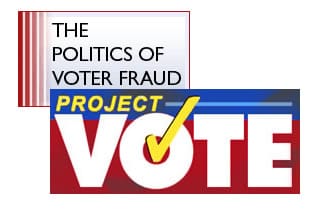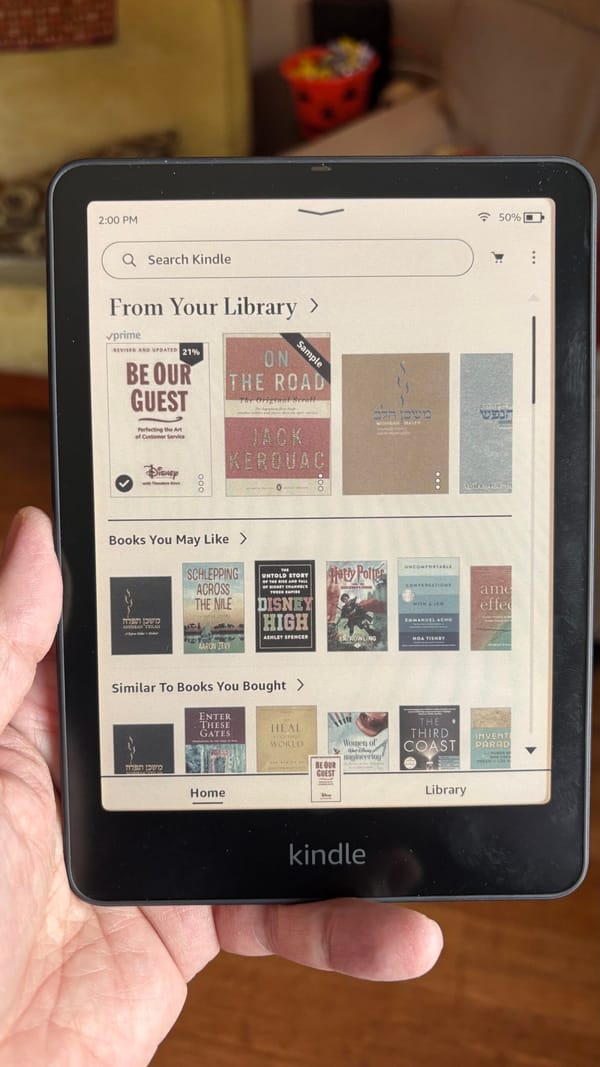Project Vote Releases "The Politics of Voter Fraud" Today
The voter-participation nonprofit, Project Vote, today released a report, The Politics of Voter Fraud, demonstrating that widespread allegations of voter fraud are a myth generated by the right. Here is a guest post from Project Vote deputy director Michael Slater discussing just how much of a myth

In a first for Chicago Carless, today I offer these pages over to the esteemed voter-participation nonprofit, Project Vote. The organization today released a report, "The Politics of Voter Fraud" (PDF file), that disturbingly shows that widespread allegations of voter fraud are a "myth", generated in close and contentious electoral contests, and, unfortunately, serving to reduce voter participation as new bureaucratic hurdles are thrown up to combat the almost non-existent problem.
After the electoral bloodsport of Chicago's municipal elections last week, anyone in this city should find this report absolutely eye-opening. Please welcome more on the subject from Project Vote deputy director Michael Slater:
VOTER FRAUD AS MYTH
by Michael Slater, Project Vote deputy director
The idea that “voter fraud” threatens the integrity of America’s democratic process is a myth concocted by partisans who seek to impose restrictive regulations on voting and voter registration. Their goal: discourage traditionally marginalized groups from exercising their right to vote. These are the findings of a new Project Vote report, “The Politics of Voter Fraud,” authored by Lorraine C. Minnite, PhD at Barnard College, Columbia University.
Minnite’s thorough investigation of law enforcement statistics on arrests, indictments and convictions yields no evidentiary support for a U.S. Senate Republican Policy Committee report claim that, “voter fraud continues to plague our nation’s federal elections, diluting and canceling out the lawful votes of the vast majority of Americans.”
On the contrary, only 24 people were convicted of or pleaded guilty to illegal voting between 2002 and 2005 in federal courts, an average of eight people a year. Her review of state level evidence of voter fraud, culled from interviews, reviews of newspaper coverage and court proceedings, yielded similarly negligible results.
Despite the paucity of evidence, a contingent of well-organized individuals and groups with ties to partisan entities continues to allege widespread acts of voter fraud to create the false impression that “where there’s smoke, there’s fire.” These accusations are resurrected in the popular media long after investigations show them to be groundless.
By drumming up fear of a national crisis in the democratic process, some partisans hope to manufacture a justification for extremely restrictive regulations on voting and voter registration. Minnite notes in her report that, “The success of voter registration drives among minorities and low income people in recent years threatens to expand the base of the Democratic party and tip the balance of power away from the Republicans. Therefore, it is not difficult to understand why party operatives might seek to strategically generate enough public support for new restrictions on the vote that will disproportionately hinder opposition voters.”
And hinder opposition votes they do. Much as poll taxes and literacy tests discouraged African American voters in the Jim Crow era, increased barriers to registering and voting keeps historically disenfranchised groups away from the polls. A recent study by the Eagleton Institute of Politics at Rutgers University for the U.S. Election Assistance Commission examined voter turnout in the 2004 election among US citizens who were registered to vote. The research found that voters were 2.7 percent less likely to vote in states requiring voters to present documentation establishing their identity at the polls than they were where voters were simply required to state their names to poll workers. Latinos were 10 percent less likely to vote, Asian-Americans 8.5 percent less likely to vote and African Americans 5.7 percent less likely to vote.
The self-serving use of the voter fraud myth is incompatible with the spirit of American democracy. Voting is a right and should not be compromised by partisan manipulation of the rules and procedures governing access to the ballot box. Only politicians and their proxies scared of open debate and fair elections resort to playing games behind the scenes to determine who can exercise the most foundational of all American rights.




